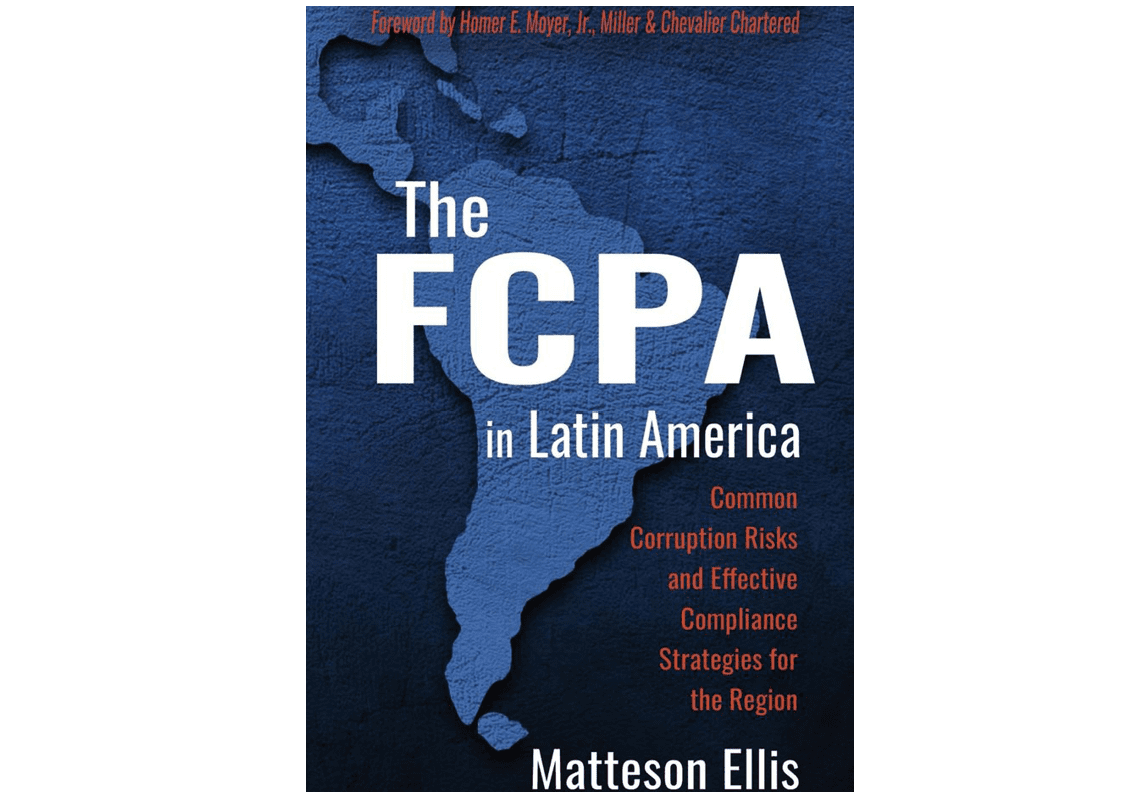Latin America is experiencing a historic anti-corruption wave as governments in the region bolster their local anti-corruption laws, prosecutors courageously pursue high-profile cases, and corrupt political and business leaders and unscrupulous companies find themselves on the defensive.
The trend is seen in Brazil’s monumental “Operation Car Wash” involving the region s largest company, Guatemala’s jailing of its former President for a customs-related bribery scheme, and the adoption of tighter anti-corruption laws in important markets like Chile, Colombia, and Mexico. An often overlooked factor in these regional developments, however, has been the role of the U.S. Foreign Corrupt Practices Act (FCPA).
For years, extraterritorial application of the FCPA by U.S. officials to companies, individuals, and schemes in Latin America has had the effect of establishing penalties in the United States for conduct largely occurring in the region. The mere threat of FCPA enforcement has prompted people working in the region to embrace anticorruption compliance norms. FCPA cases involving companies like Embraer, Wal-Mart, and Avon operating in Latin America have exposed local corruption risks, leading U.S. businesspeople to ask more questions about best practices for managing them.
THE FCPA IN LATIN AMERICA by MATTESON ELLIS, the first book to take a regional and cultural approach to FCPA compliance and enforcement matters, helps unpack the tectonic anti-corruption shifts underway in the region. It explains how U.S. companies tend to confront cultural, historical, geographical, and language barriers when implementing FCPA compliance programs with their neighbors to the South, and provides advice for navigating these challenges. It also educates Latin Americans on the FCPA, those wondering how a United States anti-corruption law could possibly apply to their own work. The book aims to guide these various audiences. To do so, it focuses on one of the most challenging and cutting-edge aspects of FCPA compliance, and an area for which little has yet been written – crossing cultural barriers to make compliance strategies effective.
The book explores the nature of unique corruption risks as well as proven strategies to bridge cultural divides that often make compliance difficult to implement successfully on the ground. It does so through the eyes of Matteson Ellis, an anti-corruption attorney who speaks Spanish and Portuguese and has years of experience working on these issues in various parts of the region.
Matteson Ellis serves as Special Counsel to the FCPA and International Anti-Corruption practice group of Miller & Chevalier Chartered in Washington, DC. He is also founder and principal of Matteson Ellis Law PLLC, a law firm focusing on FCPA compliance and enforcement. He has extensive experience in a broad range of international anti-corruption areas. Previously, he worked with the anti-corruption and anti-fraud investigations and sanctions proceedings unit at The World Bank.
Mr. Ellis has helped build compliance programs associated with some of the largest FCPA settlements to date; performed internal investigations in more than 20 countries throughout the Americas, Asia, Europe and Africa considered “high corruption risk” by international monitoring organizations; investigated fraud and corruption and supported administrative sanctions and debarment proceedings for The World Bank and The Inter-American Development Bank; and is fluent in Spanish and Portuguese.
Mr. Ellis focuses particularly on the Americas, having spent several years in the region working for a Fortune 50 multinational corporation and a government ethics watchdog group. He regularly speaks on corruption matters throughout the region and is editor of the FCPAméricas Blog.
He has worked with every facet of FCPA enforcement and compliance, including legal analysis, internal investigations, third party due diligence, transactional due diligence, anti-corruption policy drafting, compliance training, compliance audits, corruption risk assessments, voluntary disclosures to the U.S. government and resolutions with the U.S. government. He has conducted anti-corruption enforcement and compliance work in the following sectors: agriculture, construction, defense, energy/oil and gas, engineering, financial services, medical devices, mining, pharmaceuticals, gaming, roads/infrastructure and technology.
Instant Download: Read it Now
Can’t see the download form? Disable your ad blocker.


